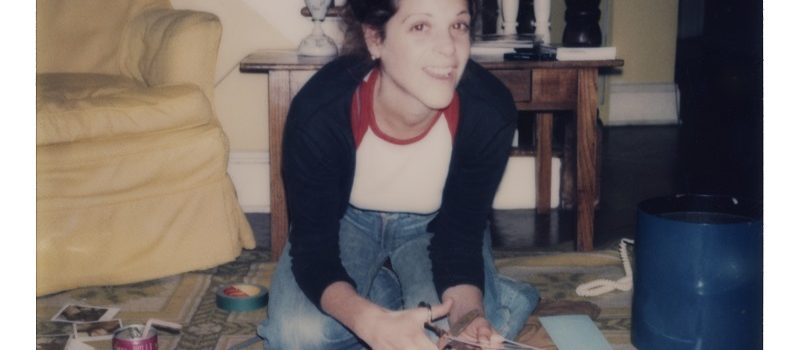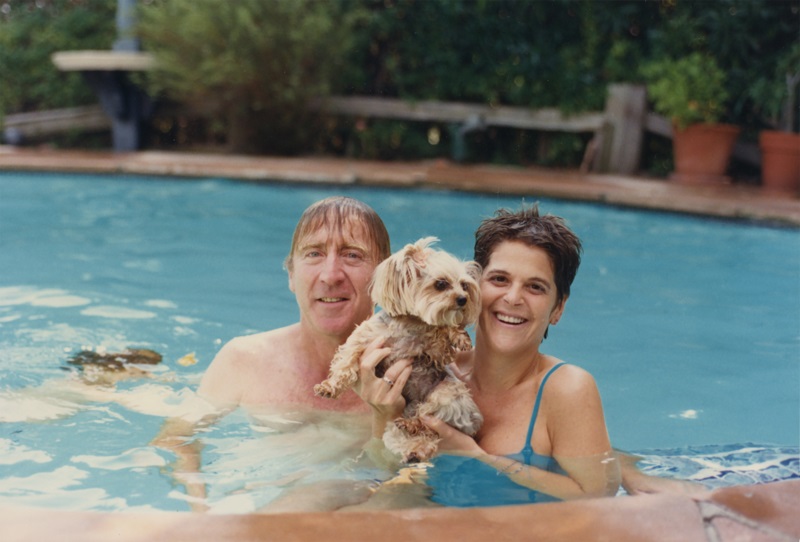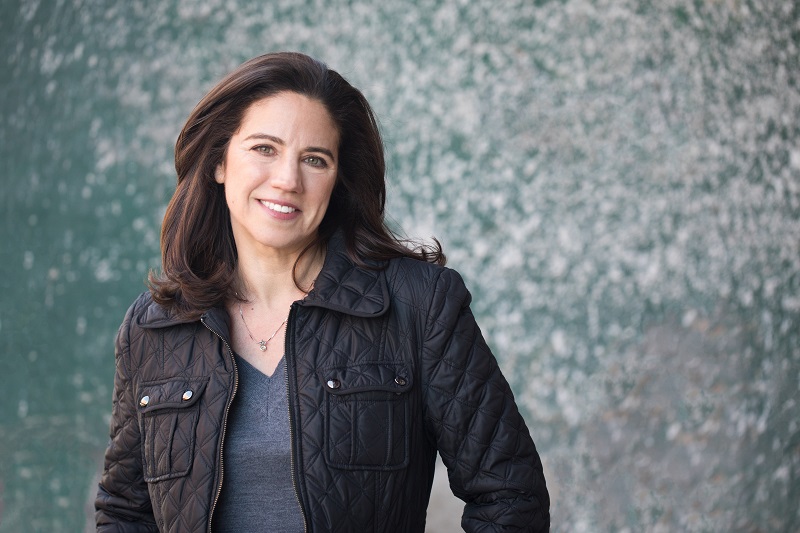Gilda Radner has inspired legions of comedy stars. Female comics (and males as well) witnessed her stand-up and her star-making stint on Saturday Night Live and found that it suddenly shed a light on their life path. These folks would not be doing what they do without her. From Melissa McCarthy to Amy Poehler and more, the stars of today had someone in Radner that led them to believe that a successful life could be achieved in the comedy world.
Love, Gilda captures that—and so much more. The Movie Mensch got to delve deep with the film’s director, Lisa D’Apolito, for an exclusive chat.
What sets Love, Gilda apart from other documentaries is that so much of the narrative for telling the story of Radner is achieved through utilizing her own words. The star left a journal behind and the estate of the comedienne—who left us too soon when she passed away at the age of 42 on May 20, 1989—gave D’Apolito access to it and as such, we have a celebration of her life that is utterly enriching.
Love, Gilda features contributions by a legion of comedy titans—such as McCarthy, Poehler, Lorne Michaels, Maya Rudolph, Chevy Chase, Bill Hader and more—that adds serious emotive weight to D’Apolito’s film. Audiences are keenly aware of Radner’s impact on our culture. Yet, there is something about hearing how she influenced and affected these pros that truly adds layers to the appreciation meter.
D’Apolito shares what it was that most surprised her most about Radner, as well as shedding a light on why—almost two decades later—her loss is felt so deeply. It is especially fascinating to hear how Radner riveted generations who were not even born yet when she lit up America’s Saturday nights with her blinding brilliance.
The Movie Mensch: There is a lot that is known about Gilda Radner, and a lot that is not. After compiling the material to dive into the documentary on her life, what surprised you that you didn’t know about Gilda?
Lisa D’Apolito: During the SNL years, like around 1978, she looked so happy on television. Yet, she was going through so much personally with her eating disorder and her crash of fame. I think it was in those journals that my heart went out to her because she was really struggling. I don’t know if anyone really knew that.
The Movie Mensch: I have talked to many a documentarian, and one thing that I glean from them all is that the phrase “kill your darlings” usually refer to writers but is so true for documentary filmmakers. Was that the biggest challenge what to cut and what to keep?
Lisa D’Apolito: We had audio tapes that Gilda recorded in order to write her book. It was 32 hours of Gilda telling her life story. The tapes were extremely damaged. We had to weed through the tapes that were salvageable and use other interviews and other media. But, those initial tapes were the best tapes. There were some stories that I really didn’t want to let go of, but because the audio was so bad, and it was distracting, I had to let go. My favorite story was Gilda telling a story about when she was at camp when she was young. She said that when they would do plays, the pretty girls would be princesses and the controlling girls would be next to the princesses and her—the “Fat girl”—would be the servant. She talked about crying in her cabin at night and then realizing she was never going to be the pretty girl… but she could be the funny girl. It’s such an amazing story, but the audio was so bad. We didn’t have movies of her at camp, so we didn’t have the material. To me, that summed up the inner life of Gilda.
The Movie Mensch: What do you think it is about her, not just during the time that the world got to treasure her talent, but to this day, that is so resonant and so timeless that everyone is still so enamored about Gilda?
Lisa D’Apolito: Everyone I’ve interviewed loved Gilda. They said she was the nicest, the sweetest, the funniest, the most real person that they’ve ever met in their life. Who you saw on television was who you met in real life. She loved to be loved. She loved people. Me, my producers, my editing team—we all identified with a different part of us that we find in Gilda. Her story feels like our story. When I watched the five years of SNL and categorized all her sketches, she just looked like she loved what she was doing. She loved being with the people she was performing with, she loved standing in front of an audience and talking to them. She was a unique and special human being that translates on screen. People have described her as this exotic, creature that you just want to hug and hugs you.
The Movie Mensch: Another aspect of her that is so important, is how she inspired not just a generation, but generations of women comics that followed in her footsteps. You got several to talk about her as well. Is it safe to say that you think a lot of these people wouldn’t be doing what they are doing if it wasn’t for Gilda?
Lisa D’Apolito: The list of anyone who says they were inspired by her, both male and female, the list is really, really long. And it even continues to younger generations. Her place in comic history is strong. From the Lucile Ball to Gilda, her physical comedy holds up, it’s timeless. She really is a genius. Interviewing Amy Poehler, Melissa McCarthy, Maya Rudolph, Cecily Strong and Bill Hader, that said that seeing her when they were younger, they could see, “Oh my God, there is somebody doing this who is like me. I could do this.” Amy talked about her and the other writers and cast writers [on SNL] would study Gilda. They would watch her sketches. I never saw her from that point of view.
The Movie Mensch: The making a film, narrative or documentary, is a huge undertaking. It takes a lot of time and is a huge commitment and requires a lot of passion. What was it about the story of Gilda that you personally wanted to devote your life to?
Lisa D’Apolito: I don’t know [laughs]. Really, it doesn’t make logical sense. I had a production company and I was doing pretty well doing commercials and things like that. I don’t know… you get obsessed. Gilda is a great character. She’s everything that you want in a subject. I used to be an actress and I guess it was my chance to portray a character and yes, I wasn’t portraying her. But, it was my chance to fully form somebody that became a part of my life. Everyone that became a part of the project—we all felt the same way. We felt like Gilda was living with us.
Love, Gilda is now in theaters and available On Demand.




